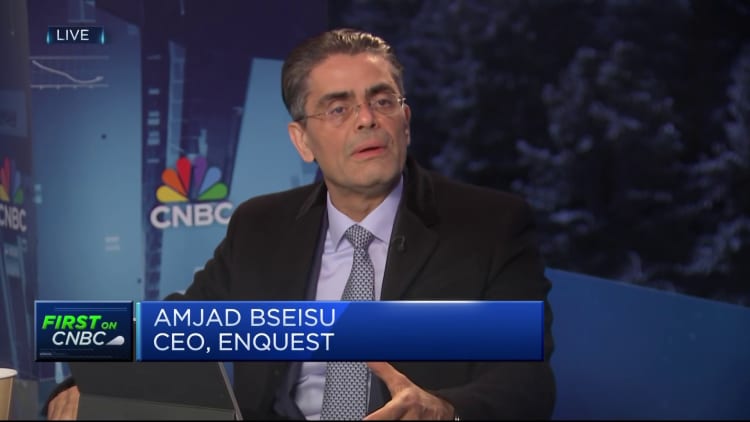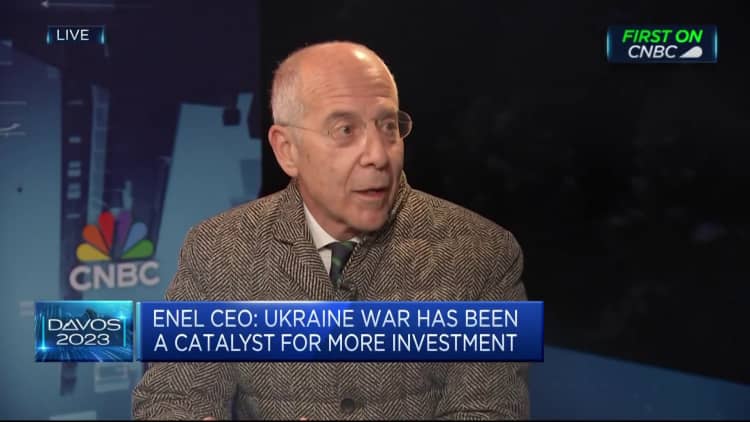The U.K. is fiscally unstable and this has led the government to indulge in "short-termism" by slapping oil majors with windfall taxes, according to Amjad Bseisu, CEO of EnQuest.
Speaking to CNBC at the World Economic Forum in Davos, Switzerland, on Tuesday, Bseisu said the North Sea petroleum exploration and production company now sees Asia as its biggest growth area, rather than the U.K. or Europe.
In November, the British government raised an existing windfall tax on oil company profits from 25% to 35% until 2028. This takes the overall levy rate for North Sea producers to 75%, once the 40% corporation tax charge is applied.
The windfall tax sought to redirect bumper profits arising from soaring oil and gas prices into programs to subsidize household energy bills, as the country battles a historic cost-of-living crisis.

"It's definitely short-termism, especially [given] that the energy industry needs to invest in renewables and needs the cash flow," Bseisu said, adding that Europe and the U.K. need investment in renewables and that "increasing taxes is the last thing you want to do" to achieve that aim.
"[The] stability of fiscal regimes is important, but also the energy security and the supply of internal energy is extremely important."
U.K. Prime Minister Rishi Sunak initially introduced the windfall tax in May, when he was finance minister in Boris Johnson's government, prior to Johnson's resignation in July. Sunak was appointed leader of the Conservative Party and prime minister in late October, following the brief and economically tumultuous tenure of Johnson's successor Liz Truss.
In November, new Finance Minister Jeremy Hunt expanded the levy on energy profits, while announcing a slew of other tax hikes and spending cuts, as the government looked to plug a substantial hole in the country's public finances.

"The U.K. is particularly unstable fiscally, which I think affects the long-term views on investments. You can do short-cycle investments but long-cycle investments are difficult in a very volatile (environment)," Bseisu said.
"There's a lot of public pressure to tax oil companies with high profits, even though the profits are not being made in the U.K. — for example, [for] many of the majors, it's maybe 5% now in terms of their net income in the U.K."
Bseisu suggested that the political instability meant that the new government "wanted a fix," but called the increase to the windfall tax "unfortunate because it's affecting the industry quite badly."
Harbour Energy, the largest offshore oil and gas producer in British waters, on Wednesday revealed that it would be forced to cut jobs, with a spokesperson telling Reuters that the windfall tax was largely to blame.
"Europe has done something smaller but I think the U.K. stands out in this respect — the U.S. hasn't really taxed companies since I think 20 or 30 years ago," he said.
"It is a volatile business, we were losing money two years ago — significant amounts of money, hundreds of billions in the industry — and prices did peak, but at the price they are today, they are lower than they were before the invasion."





